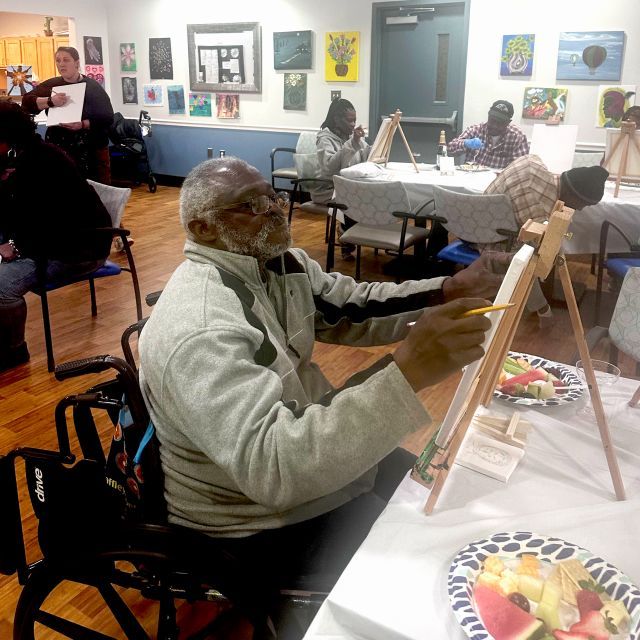Last December, we launched Equitable Path Forward (EPF), a five-year, $3.5 billion initiative to build on our commitment to advance racial equity, one of three strategic priorities to strengthen Enterprise’s impact and drive systemic change. With EPF, we’re paving a path forward for housing providers of color by filling the capital gap created by decades of systemic racism rooted in housing.
A year removed from the launch of the initiative, I would like to provide an update on our progress, celebrate our partnerships and point to the work that still lies ahead.
Unprecedented Commitments to our Growth Fund
I am very pleased to share that a broad spectrum of investors has enabled us to reach our goal of raising a $350 million Growth Fund to scale the operations and market share of developers of color and address historic inequities in the real estate industry.
A diverse and blue-chip consortium of companies, banks and foundations, EPF investors include: Bank of America, Charles and Lynn Schusterman Family Philanthropies, CIGP, Ford Foundation, Go ATL, Goldman Sachs, JPMorgan Chase, Kresge Foundation, MacKenzie Scott, National Philanthropic Trust, Netflix, NY Attorney General, New York Life, Northern Trust, Ralph C. Wilson Foundation, Siemens Foundation, and U.S. Bank.
Including grants, loans, equity, tax credits and guarantees, our investors’ commitments are helping Enterprise meet the needs of developers across the country. Whether it is grant capital to help grow organizational capacity, an unsecured line of credit—among the hardest-to-access capital—or equity to finance an affordable housing development, investments from our Growth Fund are catalyzing demonstrable change in the industry.
Reframing Risk
From the start, a critical component of EPF was to reframe the perception of risk in the underwriting process. To finance a real estate deal today, most underwriters require a minimum $1 million in liquidity and $5 million in net worth. If you are a developer of color, this often presents a conundrum. As we put it in Impact Alpha: “You need to work on large projects in order to build your balance sheet and meet investor requirements, but without a hefty balance sheet in the first place it is nearly impossible to build a portfolio.”
To quote just one of our many partners:
“There's not a talent disparity among Black developers, but there is a wealth disparity,” said Curtis Doucette Jr., CEO of Iris Development in New Orleans. “Throughout my career, the biggest challenge has been finding enough money, especially equity, to get projects done.”
Along with employing more flexible underwriting standards, we created a first-of-its kind Standby Guaranty Facility to address this challenge. This credit enhancement tool creates access to new sources of investments for developers whose balance sheets don't meet traditional investor requirements. It also allows these developers to avoid third-party co-guarantor requirements, which has historically served as an impediment on their growth. That way, we level the playing field for developers of color so they can hold on to more of their profits and growth potential.
Not only will this immediately unlock capital to developers who have been locked out of traditional investor pools, but the operating history that follows will help change the system by proving to the capital markets that these investments are well worth making within their required risk-adjusted returns, and that will in turn help unlock exponentially greater investment in these housing providers and the communities they serve.
Investing in Housing Providers of Color
While raising capital is an important part of the equation, efficiently deploying that capital is paramount. So let me turn now to how we’re supporting housing providers of color through EPF. While our plan is to fully invest the Growth Fund over a five-year period, I am pleased to share that we have already committed over $150 million to-date. This includes deals at every cycle of the process from the early stages of our pipeline to those already closed. From every region of the country—from the northeast to the northwest, from the southwest to the southeast—the developers we are partnering with include Black, Latino and Asian men and women. Along with being leaders in the industry, each is uniquely capable of making culturally competent contributions to the neighborhoods where they work.
In the coming months and years, we will continue expanding the diversity of our investments—across races, ethnicities, genders, and geographies.
Looking Ahead
On behalf of the entire Enterprise family, we are so humbled by and grateful to our partners. It is a true privilege to collaborate with individuals, teams and organizations dedicated to creating inclusive and equitable communities—and for entrusting Enterprise with stewarding this effort to advance racial equity in the housing industry.
While we have achieved much to-date, we have much yet to accomplish—together.
To further advance racial equity, our development arm recently launched the Let’s Build Accelerator, a joint venture development program with an initial $5 million investment to accelerate impact through partnerships with community and faith-based developers of color.
In the months ahead, look for additional initiatives to take our impact to the next level. Building on our Preservation Funds, we are working on a new initiative that is focused on addressing the wealth gap between renters and homeowners. Our vision is that renters can participate in the financial success of their rental housing community alongside investors in furtherance of our goal of creating a more just and equitable society.
If you are interested in partnering or learning more about Equitable Path Forward or our other initiatives, please don’t hesitate to reach out.
